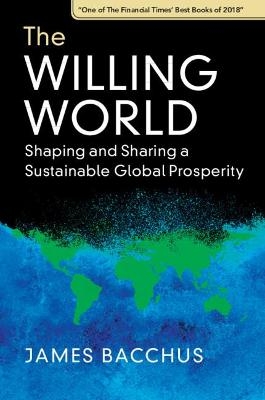
The Willing World
Cambridge University Press (Verlag)
978-1-009-20219-0 (ISBN)
In this time of unwillingness, the right kinds of global solutions are needed now more than ever. Climate change is here and intensifying. Anxieties over economic globalization grip many in the fear of change. While these fearful have turned inward into unwillingness, the world's willing are working harder than ever for international and other cooperative solutions. James Bacchus explains why most of the solutions we need must be found in local and regional partnerships of the willing that can be scaled up and linked up worldwide. This can only be achieved within new and enhanced enabling frameworks of global and other international rules that are upheld through the international rule of law. To succeed, these rules and frameworks must for the first time see and treat economy and environment as one. The Willing World explains how best we can build the right legal structure to attain our global goals - and summon and inspire the willingness needed to do it.
James Bacchus was a founding member and twice the chairman of the Appellate Body of the World Trade Organization - the chief judge on the highest court of international trade. He is Distinguished University Professor of Global Affairs and Director of the Center for Global Economic and Environmental Opportunity of the University of Central Florida. He is the author of Trade and Freedom (2004), and has written and spoken extensively on global governance in leading publications and on prominent platforms worldwide. For decades, he has been an advocate of freer trade and investment, and, starting with his service as a Member of the Congress of the United States before becoming a judge, he has long also been engaged in efforts to forestall climate change and further global sustainable development.
Preface; Introduction; Part I. On What We Hope to Do: 1. On the elusive definition of sustainable development; 2. On defining sustainable development by doing it; 3. On the indivisibility of our economic and environmental future; 4. On the necessity of the international rule of law for effective global economic and environmental governance; Part II. On What We Have Done So Far: 5. On the nature of competitiveness and the need for world trade rules; 6. On our international economic efforts on trade and investment; 7. On our climate and other international environmental efforts; 8. On our global goals for sustainable development; 9. On the unfolding of international economic and environmental law in our unwilling world; Part III. On What We Must Do Now: 10. On the need for new approaches to global economic and environmental goals and governance; 11. On re-imagining the relationship between economy and environment in international economic law to support sustainable development; 12. On a new approach for sustainable energy in international trade law; 13. On how international investment law can be re-imagined for sustainable development; 14. On policy space and post-Paris climate action; 15. On food, forests, ocean, and fisheries; 16. On water, biodiversity, and rules to protect natural resources; 17. On making and re-making enabling frameworks for sustainable development; 18. On resolving disputes and linking enabling frameworks through the international rule of law; Conclusion.
| Erscheinungsdatum | 14.03.2022 |
|---|---|
| Zusatzinfo | Worked examples or Exercises |
| Verlagsort | Cambridge |
| Sprache | englisch |
| Maße | 152 x 228 mm |
| Gewicht | 767 g |
| Themenwelt | Naturwissenschaften ► Biologie ► Ökologie / Naturschutz |
| Recht / Steuern ► EU / Internationales Recht | |
| ISBN-10 | 1-009-20219-7 / 1009202197 |
| ISBN-13 | 978-1-009-20219-0 / 9781009202190 |
| Zustand | Neuware |
| Informationen gemäß Produktsicherheitsverordnung (GPSR) | |
| Haben Sie eine Frage zum Produkt? |
aus dem Bereich


